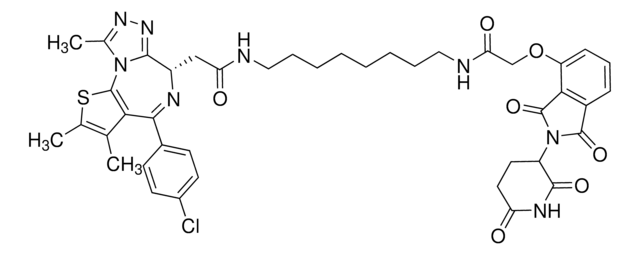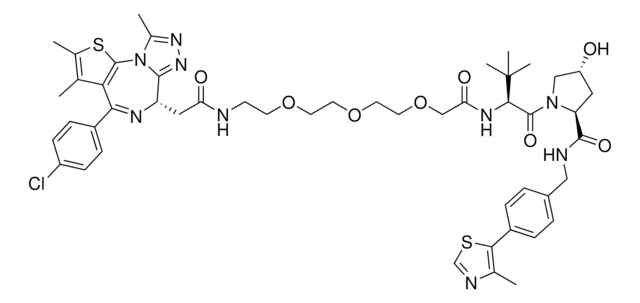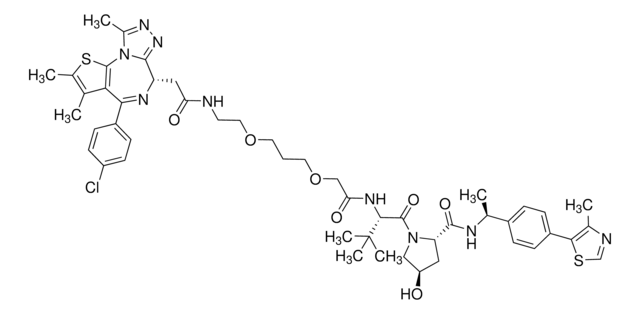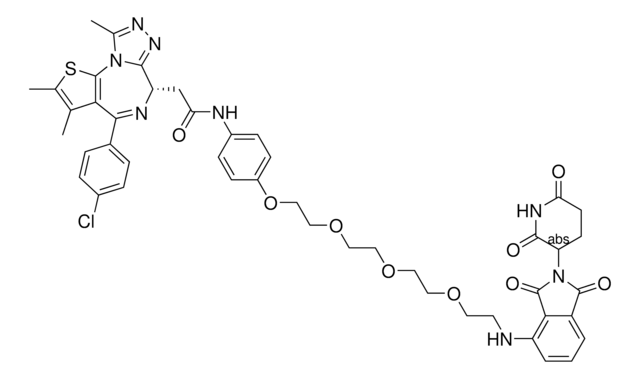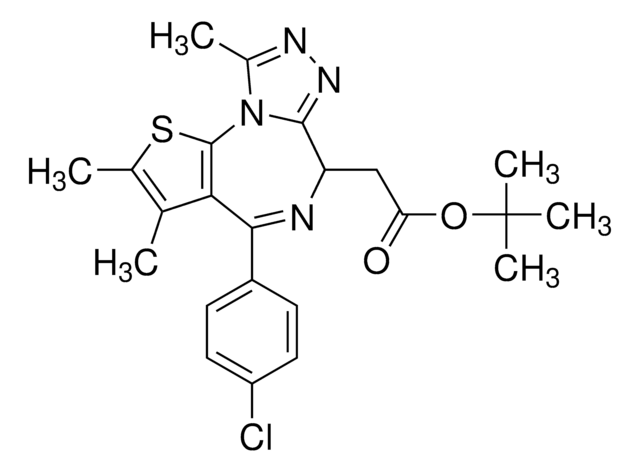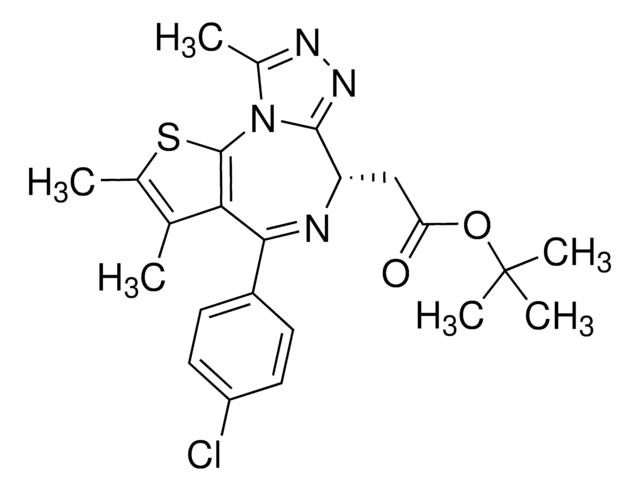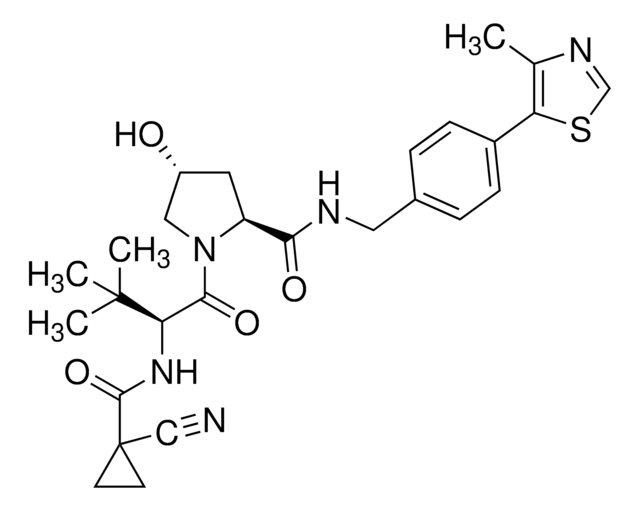SML2687
dBET1
≥98% (HPLC)
Synonyme(s) :
(6S)-4-(4-Chlorophenyl)-N-[4-[[2-[[2-(2,6-dioxo-3-piperidinyl)-2,3-dihydro-1,3-dioxo-1H-isoindol-4-yl]oxy]acetyl]amino]butyl]-2,3,9-trimethyl-6H-thieno[3,2-f][1,2,4]triazolo[4,3-a][1,4]diazepine-6-acetamide, 2-((S)-4-(4-Chlorophenyl)-2,3,9-trimethyl-6H-thieno[3,2-f][1,2,4]triazolo[4,3-a][1,4]diazepin-6-yl)-N-(4-(2-(2-(2,6-dioxopiperidin-3-yl)-1,3-dioxoisoindolin-4-yloxy)acetamido)butyl)acetamide
About This Item
Produits recommandés
ligand
thalidomide
Essai
≥98% (HPLC)
Forme
powder
Couleur
white to beige
Solubilité
DMSO: 2 mg/mL, clear
Température de stockage
−20°C
Chaîne SMILES
[s]1c2c(c(c1C)C)C(=N[C@H](c7[n]2c(nn7)C)CC(=O)NCCCCNC(=O)COc4c5c(ccc4)C(=O)N(C5=O)C6CCC(=O)NC6=O)c3ccc(cc3)Cl
Clé InChI
LKEGXJXRNBALBV-PMCHYTPCSA-N
Actions biochimiques/physiologiques
Produit(s) apparenté(s)
Code de la classe de stockage
11 - Combustible Solids
Classe de danger pour l'eau (WGK)
WGK 3
Point d'éclair (°F)
Not applicable
Point d'éclair (°C)
Not applicable
Faites votre choix parmi les versions les plus récentes :
Certificats d'analyse (COA)
It looks like we've run into a problem, but you can still download Certificates of Analysis from our Documents section.
Si vous avez besoin d'assistance, veuillez contacter Service Clients
Déjà en possession de ce produit ?
Retrouvez la documentation relative aux produits que vous avez récemment achetés dans la Bibliothèque de documents.
Notre équipe de scientifiques dispose d'une expérience dans tous les secteurs de la recherche, notamment en sciences de la vie, science des matériaux, synthèse chimique, chromatographie, analyse et dans de nombreux autres domaines..
Contacter notre Service technique